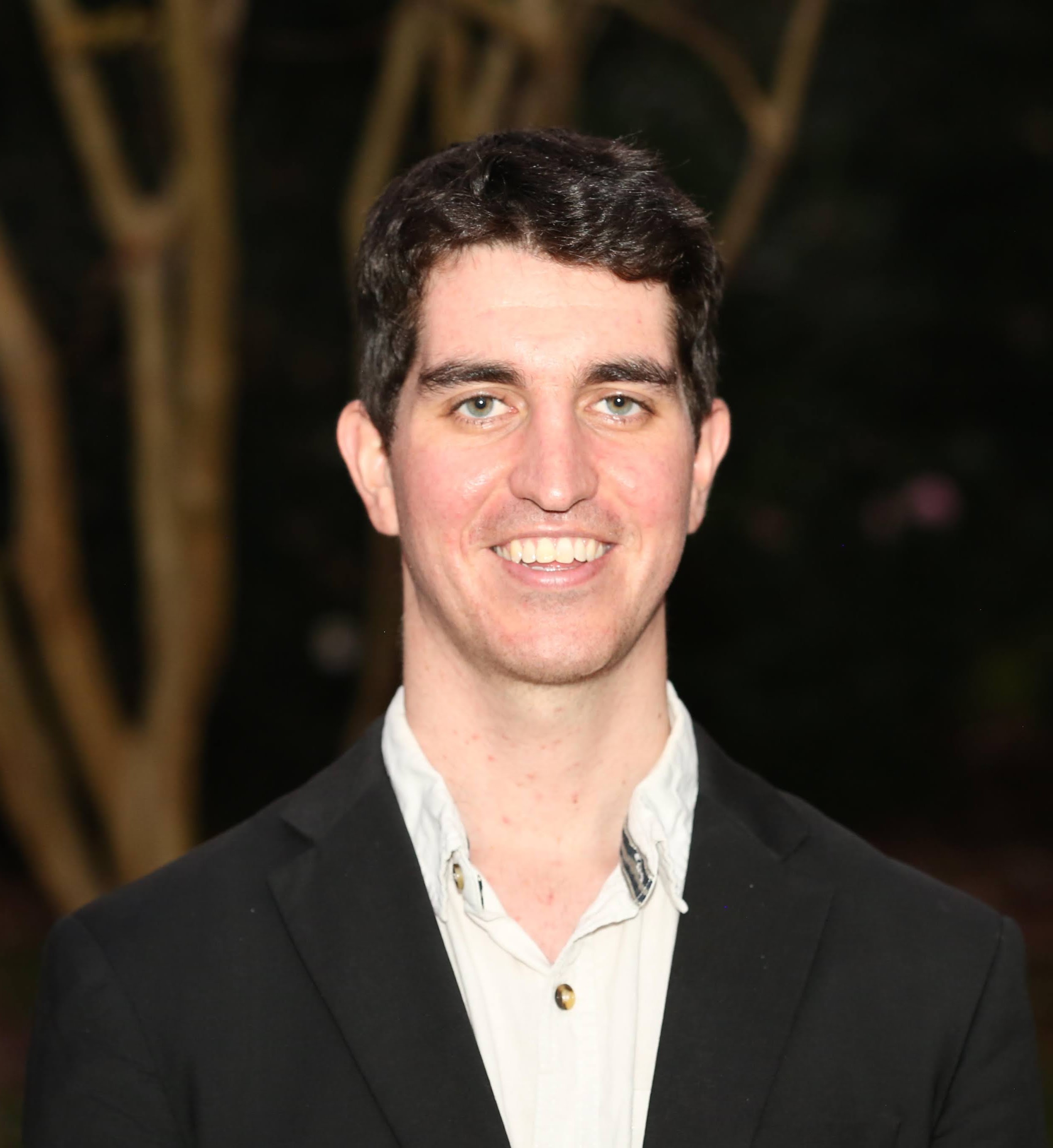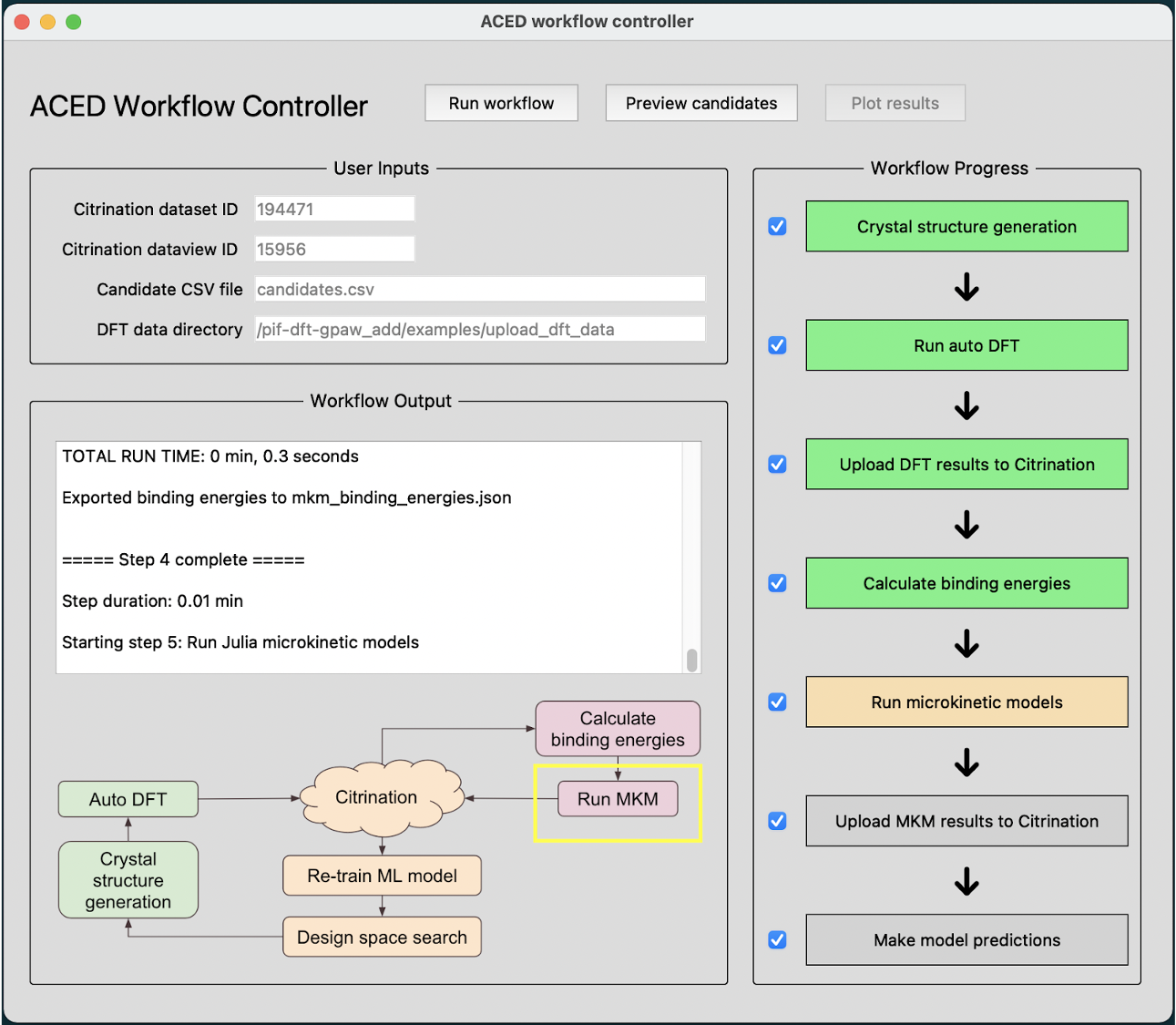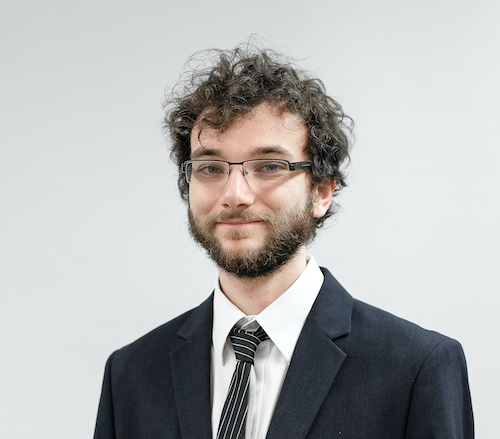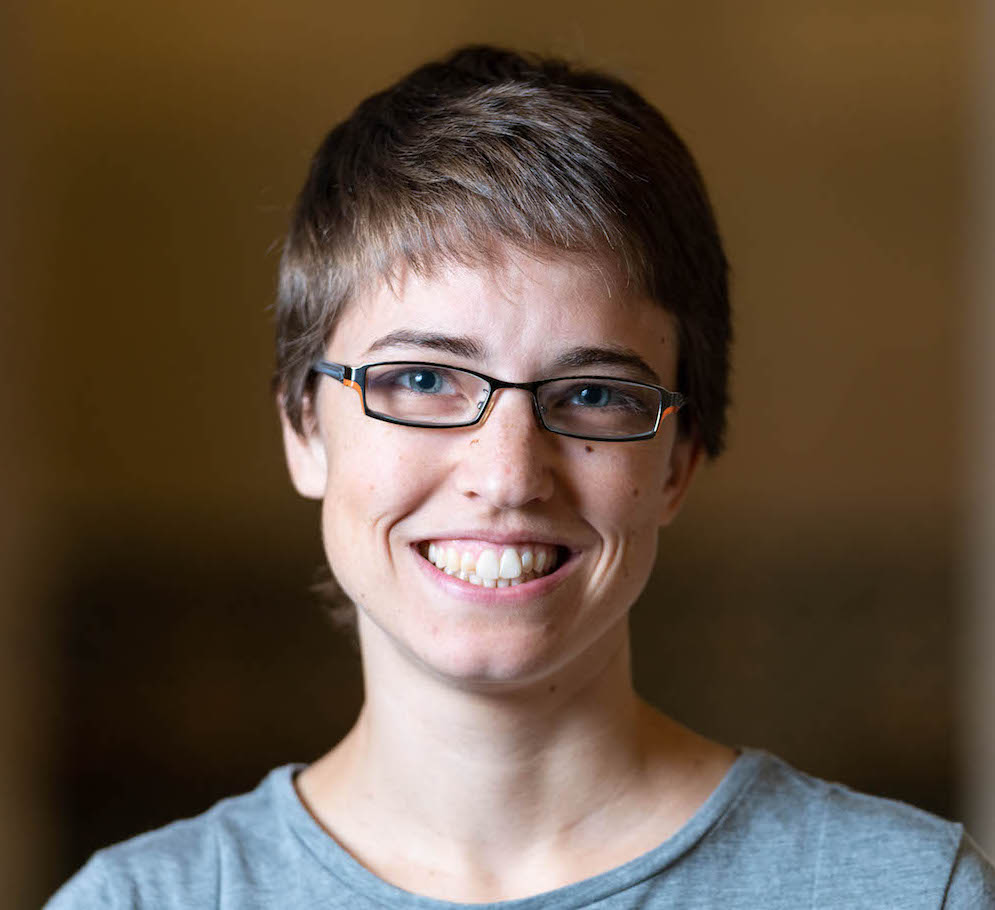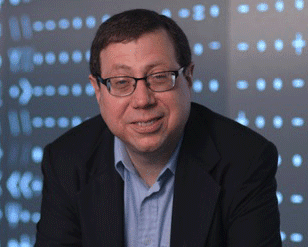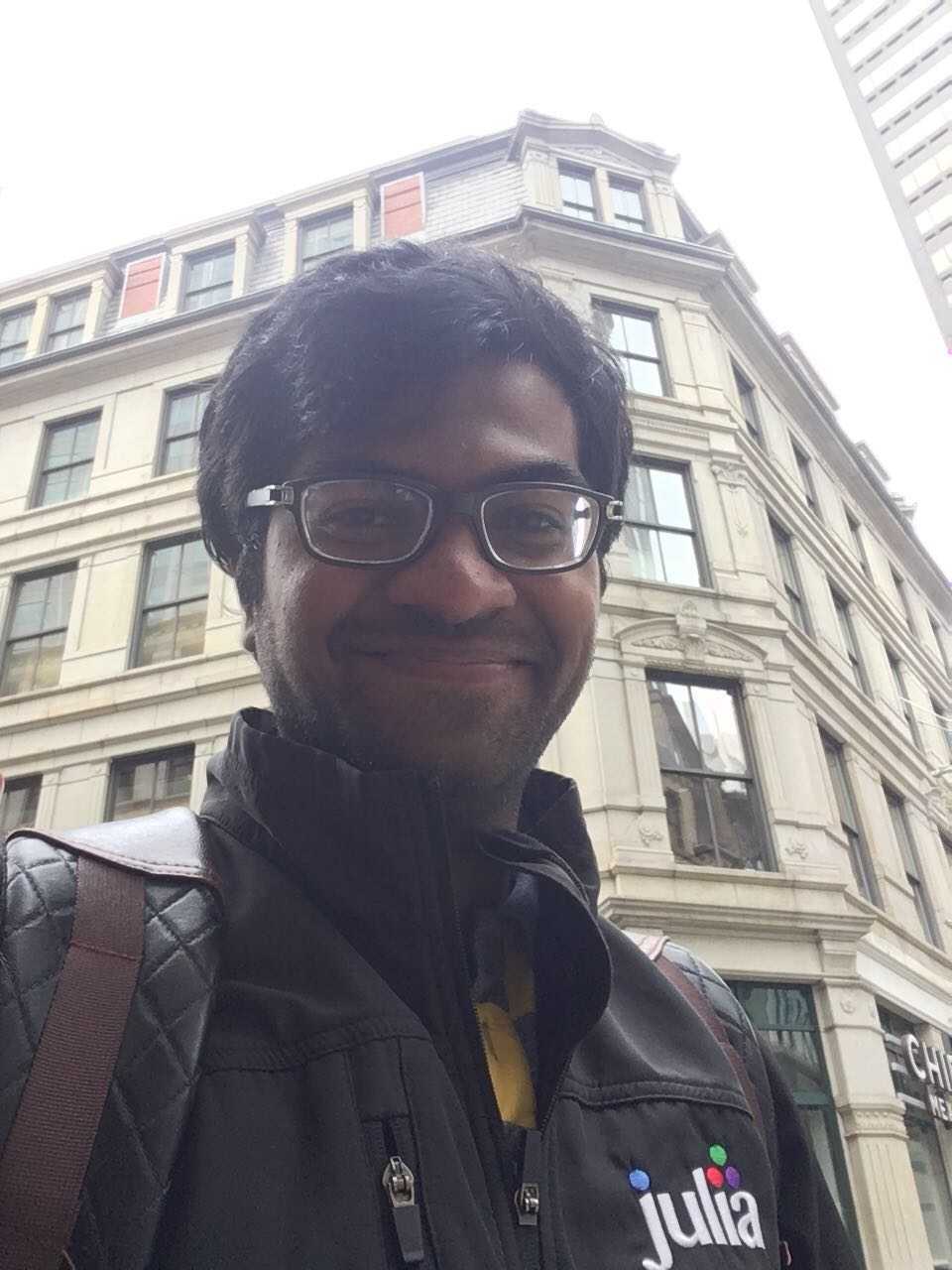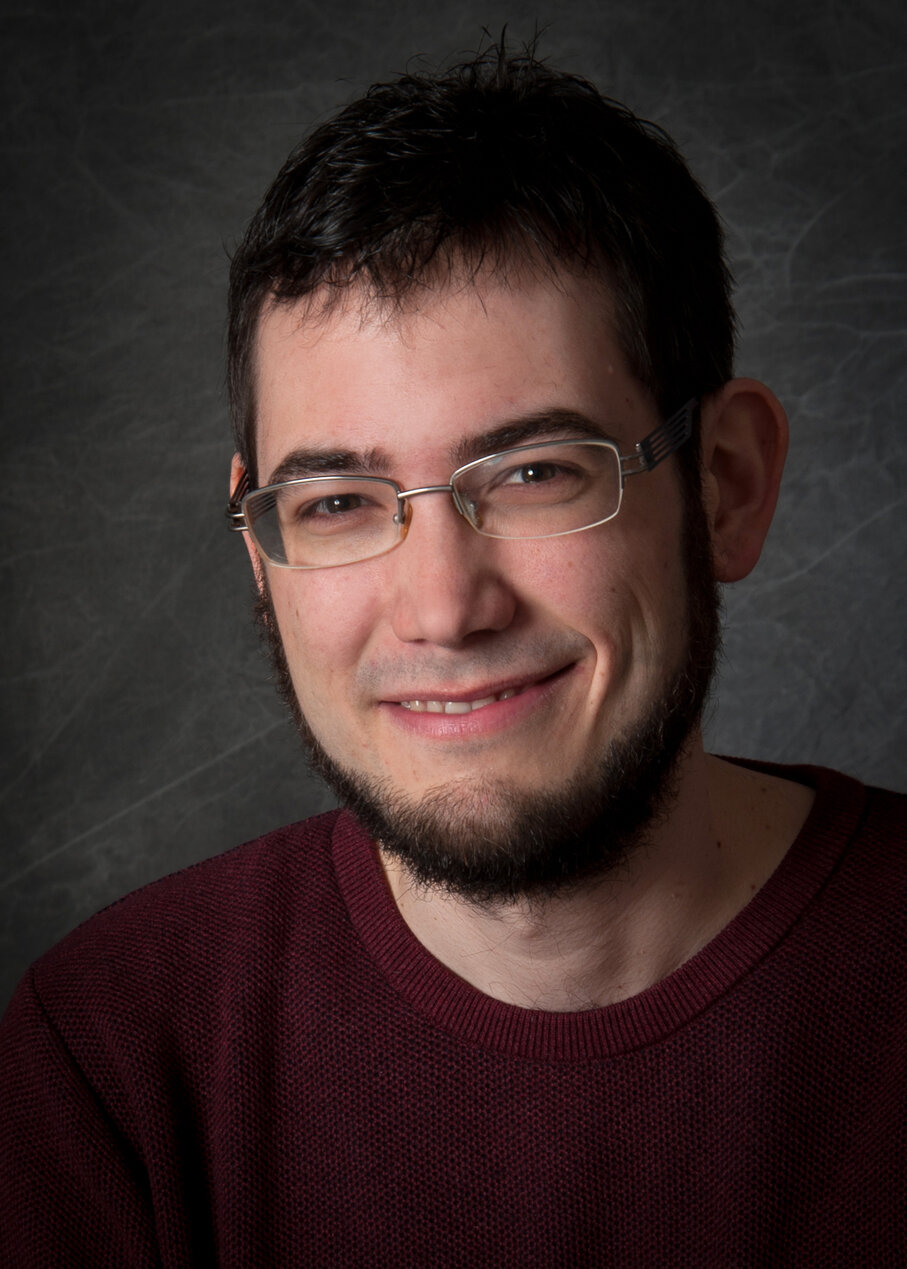ACED: Accelerated Computational Electrochemical systems Discovery
Two key efforts to curb global greenhouse gas emissions involve reducing CO2 into energy-dense liquid fuels and replacing the energy-intensive Haber-Bosch process for nitrogen reduction with an electrochemical alternative. In addition, efforts to electrify long-distance trucking or aviation are limited by the low-energy density of modern lithium-ion chemistries compared to petroleum fuels. Novel materials can address both of these challenges; however, systematic, theoretical evaluations of candidate material systems in-silico are limited to small design spaces and low-fidelity screening that fail to model realistic operating conditions.
The goal of this project is to alter this paradigm by enabling rapid, high-fidelity screening of large numbers of electrochemical functional materials for use in new energy technologies. The team brings together complementary expertise in advanced computing, numerical methods, and materials science. Overall, the team expects to accelerate the overall energy material development and optimization process by 80%.

See AutoMat in action!
Prefer static content? Download flyers here...
Research
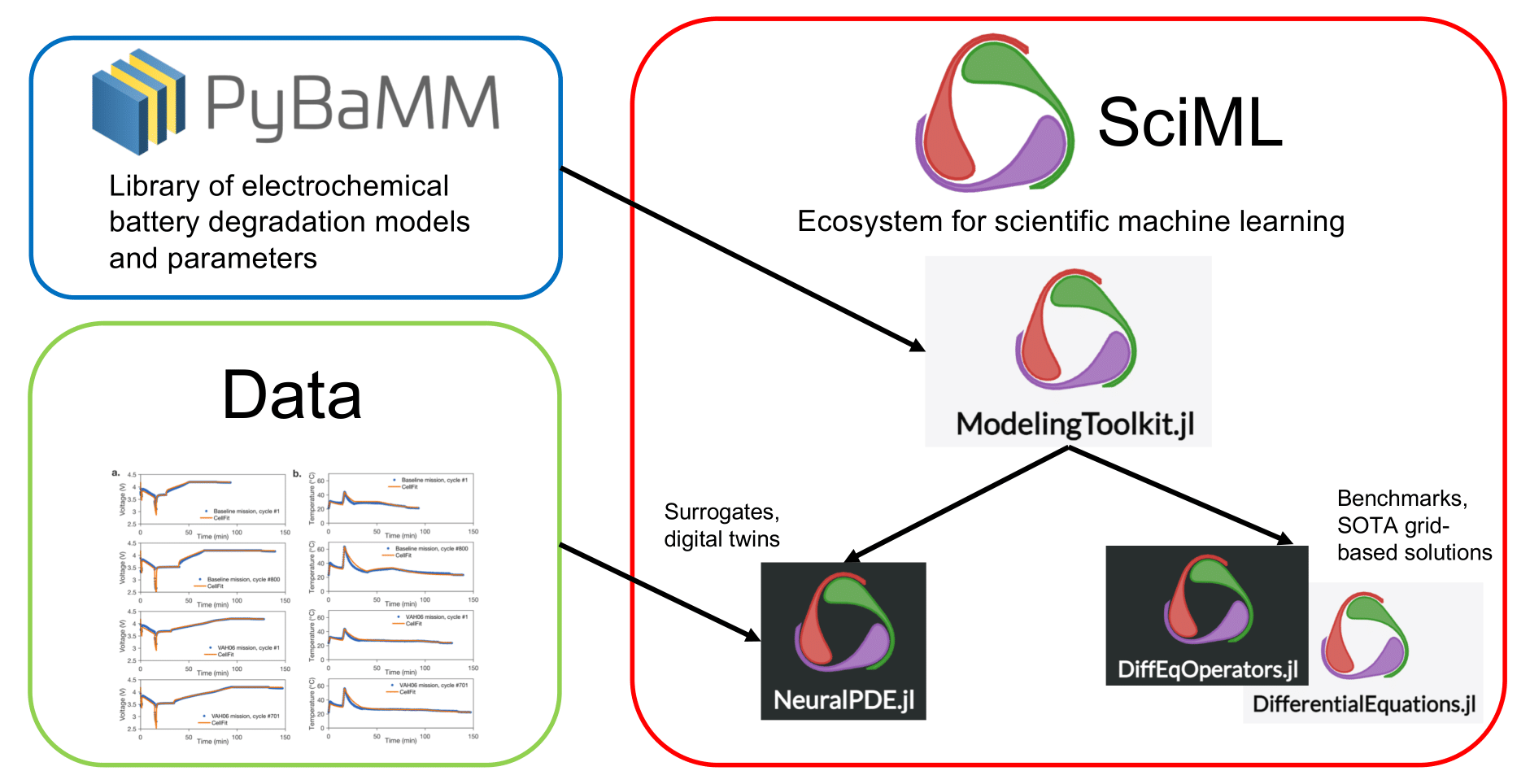
Cell-scale battery modeling (P2D/DFN models)
We are generating cell-scale battery models from porous-electrode theory (such as the P2D/DFN model) from PyBaMM in ModelingToolkit.jl to leverage the simulating power of the SciML ecosystem - either using Method of Lines (finite differences then ODE/DAE solvers) or by surrogatization with Physics-Informed Neural Networks. We will also develop hybrid models that directly incorporate experimental data into the models.
High-throughput density functional theory calculations
To rapidly generate a large-scale database of reaction intermediate structures, we are developing an automated DFT framework. This will simultaneously accelerate adsorption energy computations while systematically accumulating and manipulating output data in a manner for ease of integration into machine learning models. Moreover, it will facilitate the overall closed-loop sequential learning approach to explore new systems.
Sequential learning for design of experiments
We will perform physics-aware machine learning to iteratively guide simulations towards candidate materials. This sequential learning approach will enable an efficient and uncertainty-driven exploration of the high-dimensional design spaces encompassed in this work while allowing for multi-objective optimization of catalyst parameters.
Physics-informed Surrogate ML Models
Building on the success of methods such as Crystal Graph Convolutional Neural Networks and Equivariant Neural Networks in predicting properties of crystalline solids as well as software packages for molecular machine learning such as DeepChem, we are developing software to combine these techniques to rapidly and accurately predict energetics of the adsorption processes critical to catalysis of reactions such as nitrogen reduction, as well as to screen novel electrolyte molecules and blends.
Accelerated solution of microkinetic differential equations
Leveraging the advanced numerical techniques implemented in the Julia programming language, we are developing customized solutions to dramatically speed up the solutions of the challenging stiff differential algebraic equations (DAE’s) that describe the interactions of chemical species on catalytic surfaces.
People
Leadership
Venkat Viswanathan
Alan Edelman
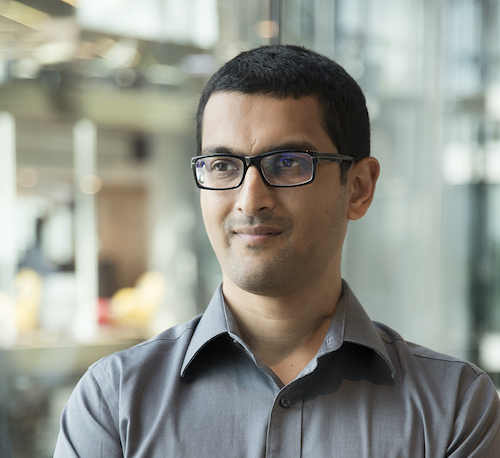
Viral Shah
Chris Rackauckas
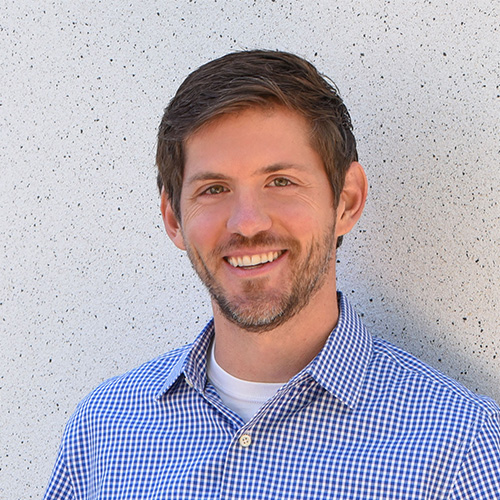
Bryce Meredig
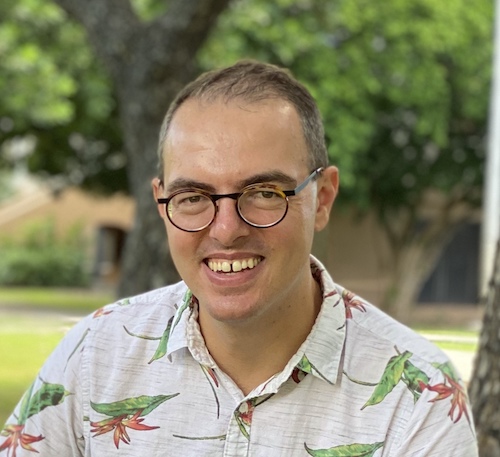
James Saal
Bharath Ramsundar
Postdoctoral Researchers
Rachel Kurchin
Valentin Sulzer
Emil Annevelink
Research Staff

Vinay Hegde
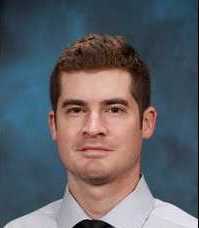
Eric Muckley
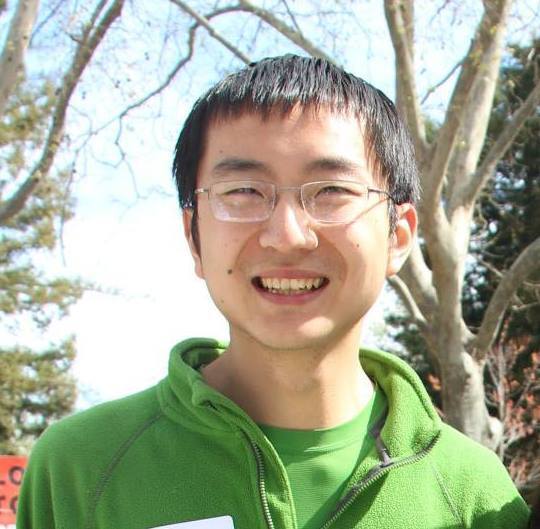
Paul Shen
Zoe McCarthy
Graduate Students
Lance Kavalsky
Dilip Krishnamurthy
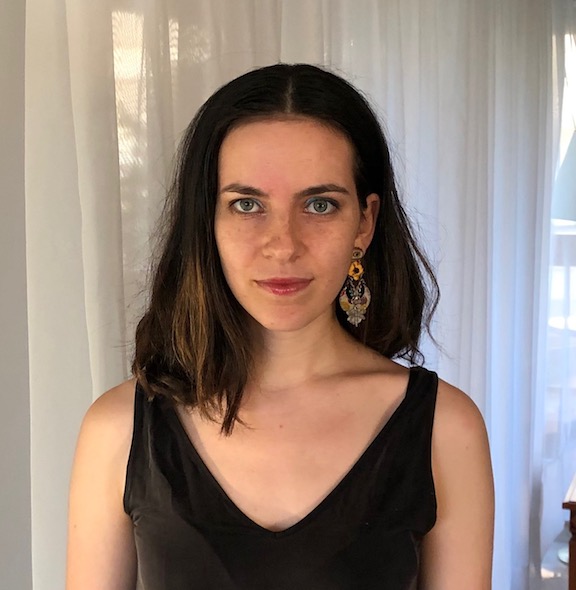
Lydia Tsiverioti

Yumin Zhang
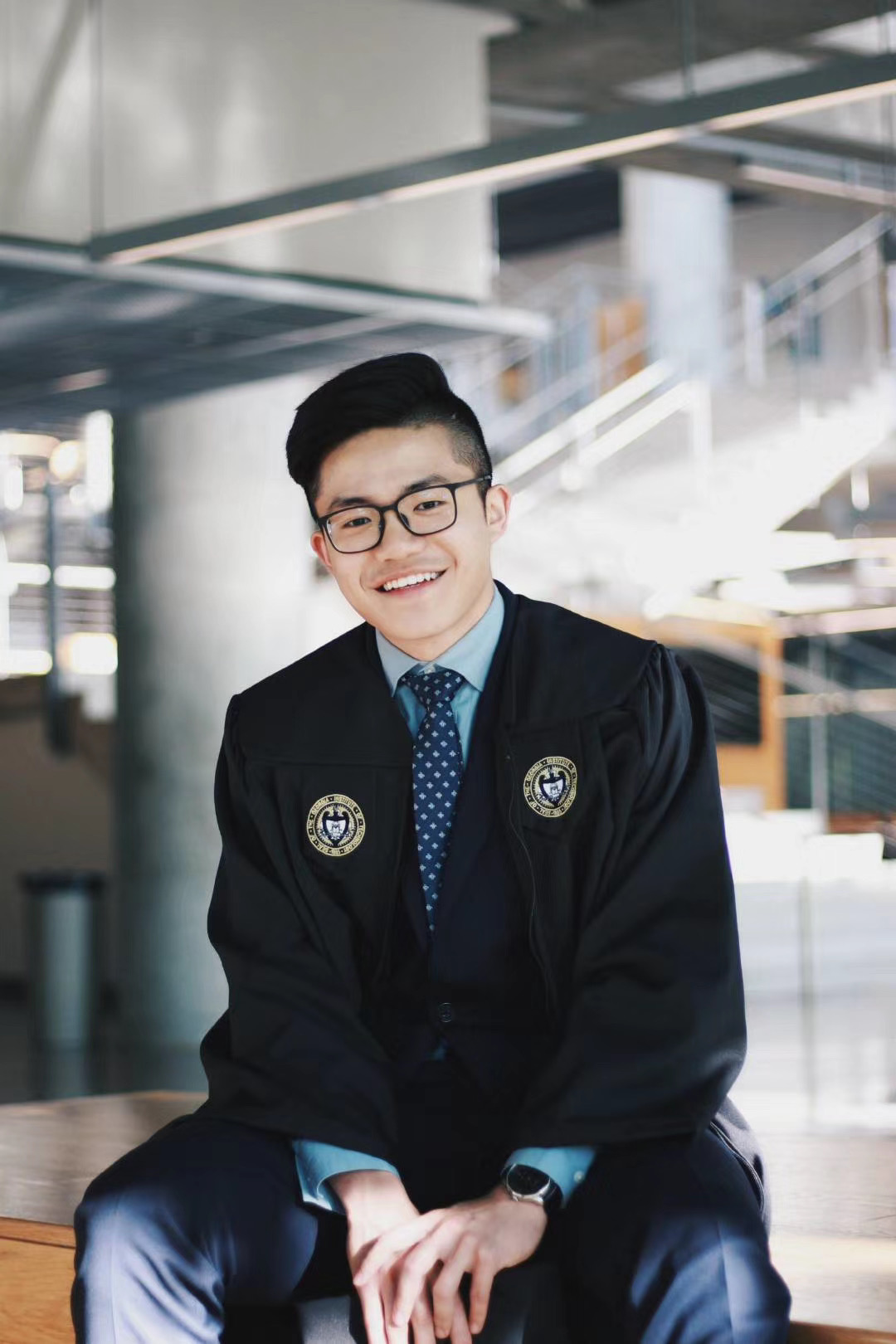
Jiankun (Kian) Pu
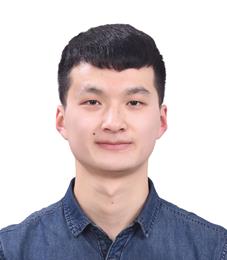
Shang Zhu

Hongyi Lin

Adarsh Dave
Ranjan Anantharaman
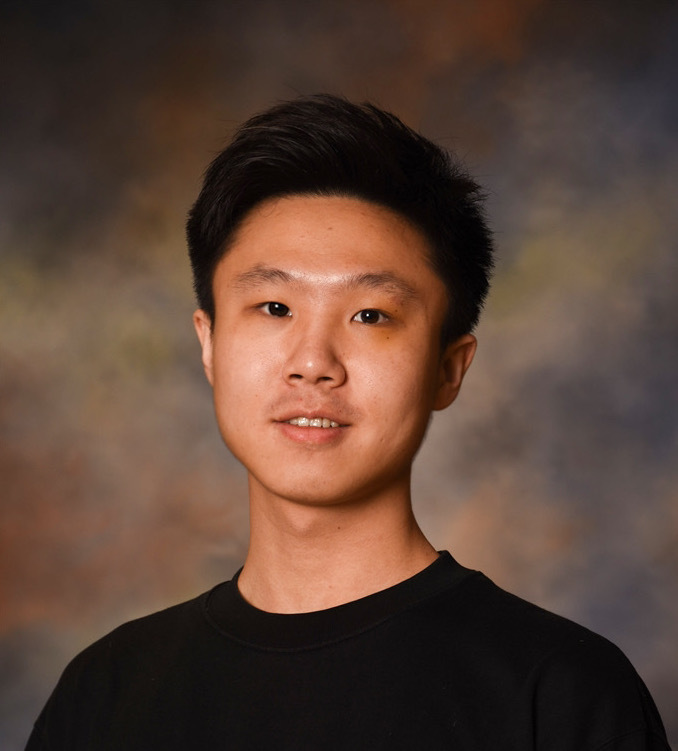
Xiaoyu (Sean) Sun
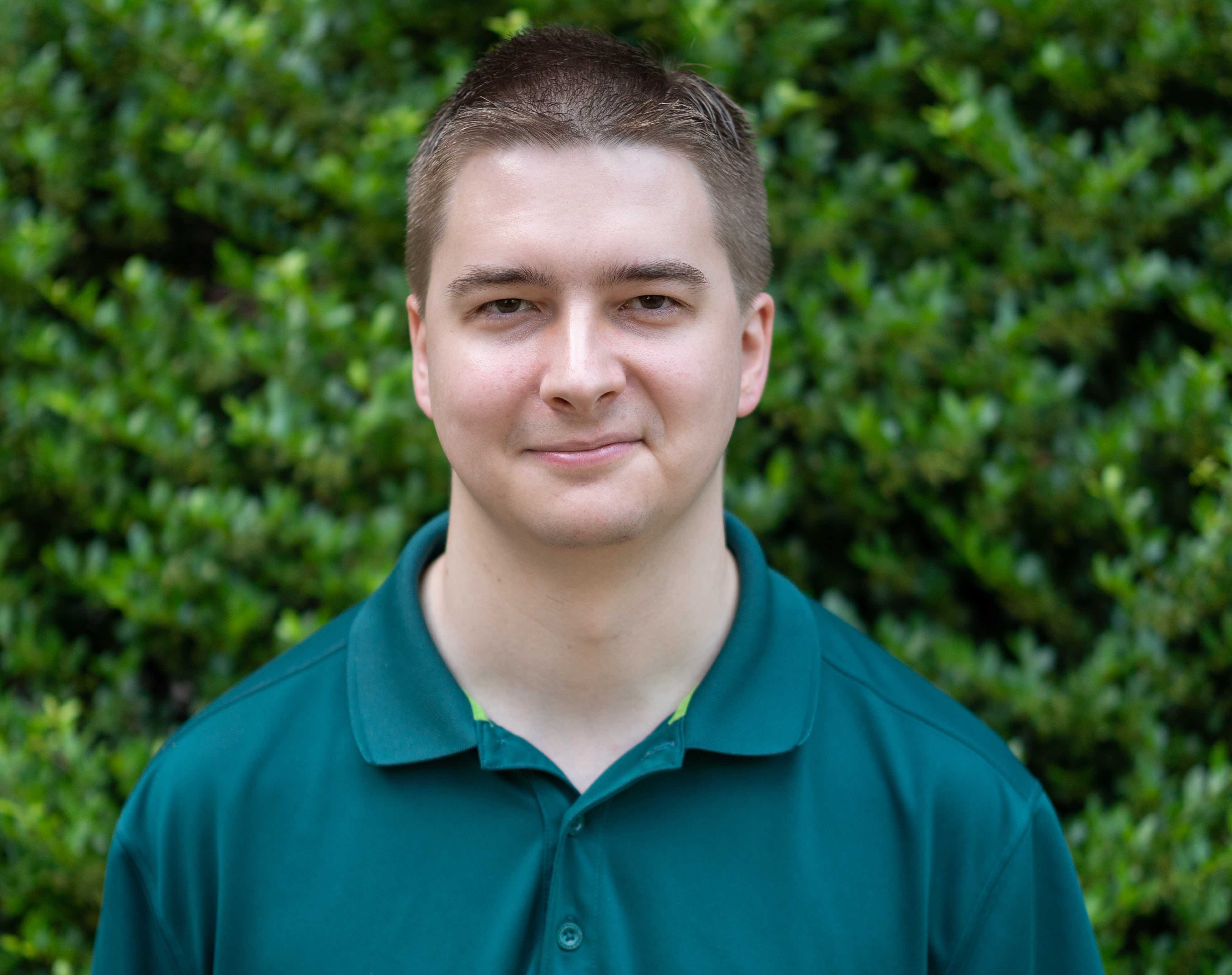
Matthew Johnson
Collaborators
Shaojie Bai
Michael F. Herbst





